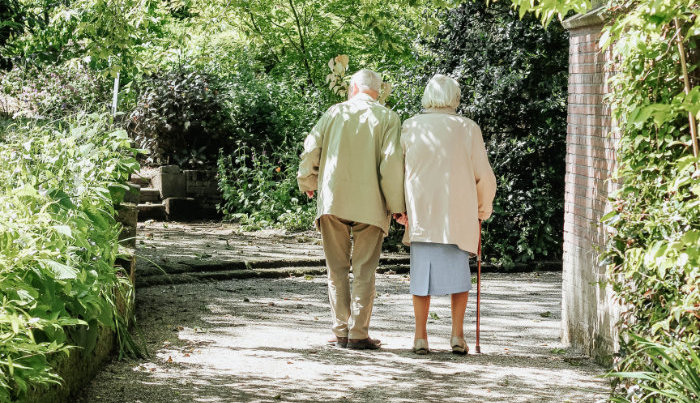The internet went down briefly across wide swathes of the US this week but was restored relatively quickly:
If your Internet is down this morning, it’s not just you. #Xfinity is currently experiencing a major nationwide outage. pic.twitter.com/4EdwuRTZYN
— 𝚊𝚝𝙲𝚘𝚖𝚖𝚞𝚗𝚒𝚌𝚊𝚝𝚒𝚘𝚗𝚜 (@atCommLLC) November 9, 2021
The FDA has announced hundreds of drug shortages—everything from insulin to iron dextran to Narcan. Check with your pharmacies to make sure your next refill can be filled. If you run into trouble try filling your prescriptions at a large hospital outpatient pharmacy if you can as they’re more likely to be stocked than smaller facilities.
California continues to shutter nuclear power plants even when it struggles to keep the lights on during peak summer demand. Nuclear power, however controversial it is, is clean energy that will help keep the planet cool. I know that the containment of nuclear waste is a huge issue, but so is catastrophic climate change:
Seems crazy that California is about to shutdown a nuclear power plant that supplies 15% of the state's non-carbon energy, even as its phase-out of fossil fuel plants (+ too slow build-out of renewables) is poised to cause electricity shortageshttps://t.co/W9PCxpZ5qF pic.twitter.com/QaLLfcCiRf
— Eric Levitz (@EricLevitz) November 9, 2021
Inflation is still rising, and it’s biting into people’s spending power:
BREAKING: U.S. inflation was up 6.2% in October over a year ago. That’s the highest inflation in 31 years.
Inflation was up 0.9% in Oct. alone, a much higher increase than 0.4% in Sept. and 0.3% in August.
Prices are rising for food, energy, shelter, used cars and new cars.
— Heather Long (@byHeatherLong) November 10, 2021
Because of the cost of food, fewer donations are being made to food banks. Demand for food banks is simultaneously increasing as families struggle to put affordable food on the table. It’s a concerning cycle.
The China Evergrande Group barely made its interest payments this week, narrowly missing default. A number of news outlets announced it had defaulted, but that turned out not to be true. But it still may be true in the near future. See this thread:
We confirmed Evergrande paid its interest at approximately the exact same time that J&J court decisions were coming down and let me tell you my blood pressure is still recovering
— Claire Boston (@claireeboston) November 10, 2021
In more “conflicting headline news” there’s this doozy:
The LA Times says the port congestion is beginning to ease on the same day the port congestion hit a new record high. https://t.co/h2iRQTf31k
— Ryan Petersen (@typesfast) November 11, 2021
A urea shortage is impacting diesel-run vehicles. Urea is used in Diesel Exhaust Fluid (DEF) which helps reduce smog-producing chemical emissions. Some vehicles won’t run without DEF. In response, some countries are going to great measures to help keep things running smoothly:
https://twitter.com/ai6yrham/status/1458456209413984259?s=20
You can search the Environmental Working Group’s database to see how contaminated tap water is in your area. You can search by zip code. It lists the contaminants found for each relevant water district/company and whether or not that water provider is operating within legal contamination limits. It’s also a good reminder that legal does not necessarily equal safe.
A little girl recently saved her family from carbon monoxide poisoning by thinking fast and calling 911 and neighbors to help her:
“I unlocked it by using my dad’s face”
9-year-old hero Jayline Brandao of Brockton knew her mom & dad were in trouble.
Fatal levels of carbon monoxide filled her family’s home, she unlocked her dads phone, dialed 911 & even called neighbors!
Her amazing story
➡️6pm➡️@boston25 pic.twitter.com/S6yfAR7D8K— Scott McDonnell (@ScottMcDonnell_) November 1, 2021
The world has 252.6 million COVID cases. The world has gained 3.3 million cases in the last seven days. There have been over 5 million deaths in total. The US has had a cumulative 47.7 million cases—nearly 500,000 cases were added in the last seven days. Over 780,000 Americans have died—over 7,600 in the last week. The US added nearly 94,000 new cases on Wednesday and nearly 1,500 deaths that day as well. The US is trending back up in case gain and is still leading global daily case gain.
Deaths among the double vaccinated elderly (in England) are on the rise as antibodies wane. Uptake on third doses is lower than anticipated in the US—encourage folks who are eligible to get their third jab, especially if elderly.
Nosocomial COVID infections of hospital patients (the spread of COVID to patients who did not come in with COVID), and incidental COVID in already sick patients (people who tested positive because they were exposed just before entering the hospital) are proving to be deadly infections indeed:
Patients went into the hospital for one concern and were later diagnosed with covid. 21% of them died, according to #Medicare data from April through September 2020.
📝: @by_cjewetthttps://t.co/w53BrhaxM0
— KFF Health News (@KFFHealthNews) November 9, 2021
That respiratory thing that just burned through Europe and the US? The one where all the tests were negative but the symptoms were there? Might have been COVID:
https://twitter.com/MackayIM/status/1458567726675357696?s=20
Cases are rising again in the US. I’m hoping that this is because antibodies are waning, and not because of overwhelming seasonality trends. And I hope that because if its antibodies, we can vaccinate our way out with boosters and kids getting their first dose:
Going in the wrong direction
Cases, hospitalizations, test positivity, and deathshttps://t.co/xStmHRzwg2 pic.twitter.com/yqSoOmeACk— Eric Topol (@EricTopol) November 11, 2021


You are reporting the comment """ by on